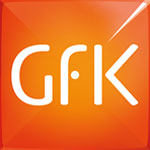Increasing wanderlust among Germans

Travel agencies in Germany have evidently overcome the economic and financial crisis, having recorded a sales increase of 6% for the current summer season compared with the previous year. The highest number of bookings this year is for Mediterranean destinations, with Turkey and Egypt particularly in demand, although Greece and Portugal have seen a decline in popularity. Long-haul destinations are also performing strongly compared with the same period of the prior year, recording growth of 11%.
The lower price of vacations this year has had a positive influence on Germans' propensity to travel. At €664 (about R6300) per person, the average price paid for a summer vacation is 2.8% lower than in the previous year for approximately the same length of stay. However, last-minute holidaymakers are considerably more price-conscious, spending almost a third less in comparison to all travellers. The length of stay is also two days shorter. Last-minute trips to Greece, Thailand and Portugal are currently available at particularly low prices, where expenditure per person per night has recently dropped by between just over 10% to just under 25% below that of the previous year. Conversely, German holidaymakers are currently paying significantly higher prices than last summer for vacation destinations such as Egypt, the Maldives and Croatia.
Greece is using price reductions to combat the tourism slump triggered by the crisis. Although vacation bookings on the German market remain below the previous year's level, they have now bottomed out. The political unrest in Thailand and the oil disaster in the USA have so far not had an impact on booking figures in Germany.
Balearics lead the way for last-minute trips
So far, a similar number of last-minute trips have been booked for this year's summer season as in the same period of the prior year. Thanks to good flight connections, the Balearics remain the top destination for last-minute bookers: almost one in five travel there, with Majorca and Ibiza the preferred destinations. The Canary Islands are also an attractive choice for spontaneous holidaymakers. Overall, however, Spanish vacation destinations have seen a slight decline so far this summer, although this could still be counteracted by strong last-minute business. As the second strongest vacation destination in this segment, Turkey is increasing its market share, but not to the same extent as for trips planned further in advance. Germany and Italy are also popular destinations for spontaneous vacation bookers, with sales shares of 7.3% and 5.3% respectively. Travel agencies report that other short-haul destinations such as France, the Netherlands and Poland are in greater demand this summer than last season. If this growth in last-minute trips continues, travel agencies in Germany could end the current summer season with record sales.
Successful start to the winter season
Advance bookings for the forthcoming 2010/2011 winter season are already looking very promising. By July, sales were up 7% on 2009, and although Germans were behaving more cautiously last year, an increase of 4% has also been recorded in comparison with the strong year of 2008. Early bookers are showing a preference for destinations in the Eastern Mediterranean (+16%) and long-haul trips (+5%) this winter. Vacations in the home country or nearby countries are showing stable demand (+2%). Only countries in the Western Mediterranean have not yet reached the sales level of the previous year.
The method
Analysis conducted by GfK Travel Insights, the Tourism Distribution Panel of GfK Retail and Technology, is based on the booking data from approximately 1,200 travel agencies, which are representative of the high street travel market in Germany. An average of 340 000 booking records from this continuous sampling enter the GfK system every month. Used to make projections for the market as a whole, the analysis produced by the GfK Tourism Distribution Panel makes it possible to draw reliable conclusions about the booking behaviour of German holidaymakers and to trace the very latest trends and developments in the tourism industry. The current data are based on analysis of booking information up to mid-July. Statements on the 2010 summer season (May to October) and the forthcoming 2010/11 winter season (November to April) represent snapshot overviews.
Source: GfK

The GfK Association was established in 1934 as a non-profit organization for the promotion of market research. Its membership consists of approximately 600 companies and individuals. The purpose of the Association is to develop innovative research methods in close cooperation with academic institutions, to promote the training and further education of market researchers, to observe the structures and developments in society, the economy and politics that play a key role in private consumption, and to research their effects on consumers. Survey results are made available to the membership. The GfK Association is a shareholder in GfK SE.
Go to: http://www.gfk.com




















